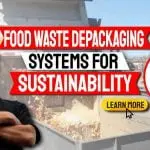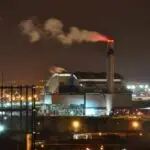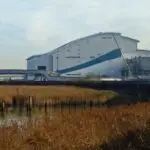Written by: Caron J Rose
There are many stringent regulations governing the treatment and disposal of waste in the UK, both onshore and offshore, and in most other countries as well. Facilities involved in waste transfer and treatment require a licence, and all personnel who work at such facilities require the proper kind of training that goes with the handling of waste that can often be dangerous if not handled properly.
Waste management facilities also need to be able to respond quickly to emergency situations. By their very nature there is rarely any warning that an emergency is about to occur. For that reason emergency response teams need to be on standby every hour of every day, and every day of every year.
Every emergency is different. Response teams need to be able to quickly identify the situation and the type of equipment needed to deal with it, whether it is a chemical spill or an oil spill, or any other type of waste problem. Certain waste management situations can require the use of absorbents to mop up the waste. Sometimes it is a dispersant that is needed to deal with the problem.
Waste management disposal and treatment can originate from both domestic and industrial sources. One of the major differences is really that of scale as industrial waste tends to need a much more robust solution than domestic waste. With industrial waste there also tend to be a greater likelihood of it being dangerous waste, or at least waste with greater potential to pollute.
The oil industry has a considerable requirement for waste disposal and treatment experts. Oily water or soil that has been contaminated with oil is examples of waste requiring treatment from accidental causes. Drilling mud is a type of oil industry waste that is generated as a result of the drilling process. It requires proper treatment and proper disposal.
Environmental options always have to be considered by waste management facilities before any decisions are made as to which actions should be taken. Storage tanks are used as well as special transportation tanks and special skips. Special tanker trucks requiring a carrier's licence can transport liquid waste between the source and a licensed transfer station or an authorised disposal location.
Waste management facilities are generally used for the treatment and disposal of hazardous waste. Non-hazardous waste, usually from domestic sources, is gathered and treated by local authorities in most cases. Industrial and commercial waste of a non-hazardous nature is usually the responsible of the company who produces it.
Waste management disposal and treatment is an important part of industry. It is a specialised skill with considerable risk involved. That is why the regulations governing its use are so tight. It is also why those who perform the tasks are experts in their field.
C. J. Rose writes on the subject of [http://www.sureclean.com] waste management and onshore/offshore environmental safety for Sureclean, global waste management services. Topics include HP & UHP water jetting, tank/vessel cleaning, vacuum transfer/pumping, industrial painting, asbestos management/removal, HVAC/duct management, NORM management. For videos see http://www.sureclean.com/video/
Flare Stack Suppliers – Flares for Methane Emission Reduction
In this article, we provide a roundup of flare stack suppliers, the stacks they produce and developments in the flare stack market, with an emphasis on the landfill gas, and biogas flare stack market. These are mostly enclosed flares for methane emission reduction and use during Energy from Waste plant downtime. On This Page Flare […]
Food Waste Depackaging Systems for Sustainability and Microplastic Reduction
Food Waste Depackaging systems are increasingly being designed for sustainability and microplastic reduction which many would say is vital for the survival of our planet. Many people are interested in the rapidly growing anaerobic digestion sector, which uses mechanical equipment called depackagers or separators, to produce contaminant-free food waste slurries that may be piped into […]
Energy From Waste by Incineration: Why a Modern Incinerator is Not a Health Risk
Making Energy from Waste by incineration should not still be accused of being a significant threat to the health of nearby residents. We wish to explain why a modern incinerator is not a health risk. Concerns about pollution and particularly the discharge of trace amounts of dangerous substances into the area around an incinerator are […]
Recycling Facts: The BIG List!
Waste Incineration Plants (also known as WtE facilities) should not be installed as a replacement for material recycling. WtE is designed to complement recycling programs because not all waste is feasible to recycle. Incineration is an engineering process that uses thermal decomposition in a highly oxidative environment to decompose organic molecules into simple compounds, predominantly […]




